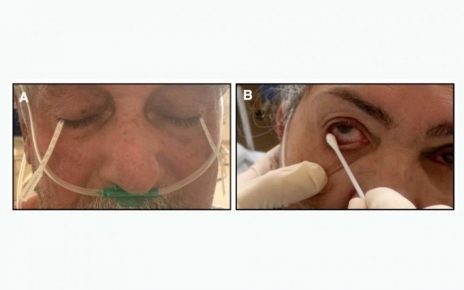It may be the most baffling quirk of COVID: What manifests as minor, flu-like symptoms in some individuals spirals into severe disease, disability, and even death in others. A new paper published in Nature may explain the genetic underpinnings of this dichotomy.
The researchers demonstrated that mice with gene variants previously linked to Alzheimer’s disease were at greater risk of dying when infected with COVID. And a retrospective analysis suggests that patients with those same gene variants were more likely to have died of COVID throughout the pandemic. Because three percent of the world population possesses these gene variants, the findings may have implications for hundreds of millions of individuals globally.
“It is clear that age, sex, and certain preconditions such as diabetes increase the risk of detrimental outcomes, but these factors don’t fully explain the spectrum of COVID outcomes,” says Sohail Tavazoie, the Leon Hess Professor at The Rockefeller University. “This is the first time that we’ve seen such a common genetic variant associated with COVID mortality.”
A closer look at APOE
In previous work, Tavazoie’s lab studied a gene called APOE that plays a role in cancer metastasis. After demonstrating that the gene suppresses the spread of melanoma and regulates anti-tumor immune responses, he and his team began looking at its different forms, or alleles, more closely. Most people have a form called APOE3, but 40 percent of the population carries at least one copy of the APOE2 or APOE4 variant. Individuals with APOE2 or APOE4 produce proteins that differ from APOE3 protein by one or two amino acids.
One or two amino acids make a difference. Individuals with APOE4 are at greater risk of developing Alzheimer’s and atherosclerosis, and Tavazoie and Benjamin Ostendorf, a postdoctoral fellow in his lab, have demonstrated that APOE4 and APOE2 impact the immune response against melanoma. As the pandemic progressed, Tavazoie and Ostendorf began to wonder whether APOE variants might impact COVID outcomes, too. “We had looked only at non-infectious diseases,” he says. “But what if APOE variants also made people vulnerable to an infectious agent, like SARS-CoV-2? Could they cause different immune responses against a virus?”
To find out, Tavazoie and colleagues first exposed more than 300 mice engineered to carry human APOE to a mouse-adapted version of SARS-CoV-2 produced by colleagues Hans-Heinrich Hoffmann and Charles M. Rice. They found that mice with APOE4 and APOE2 were more likely to die than those with the more common APOE3 allele. “The results were striking,” says Ostendorf, lead author on the study. “A difference in just one or two amino acids in the APOE gene was sufficient to cause major differences in the survival of mice exhibiting COVID.”
Source: Read Full Article



